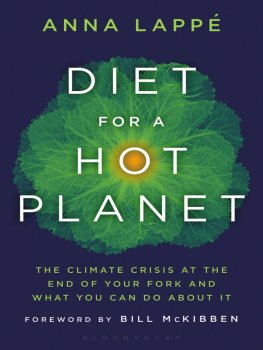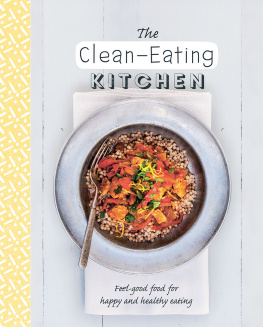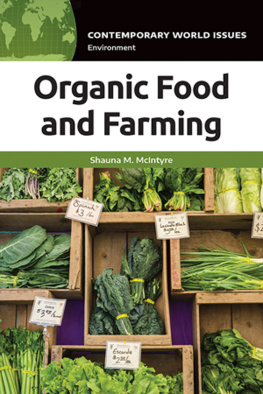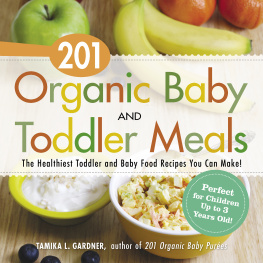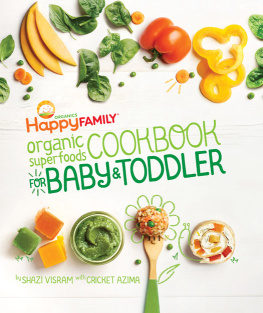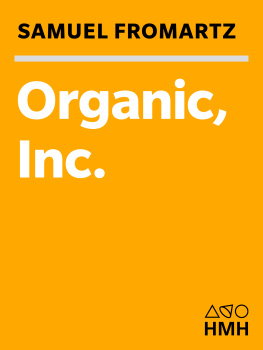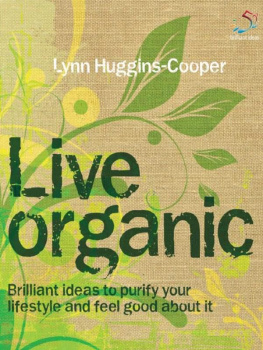Table of Contents
OTHER BOOKS BY ANNA LAPP
Hopes Edge: The Next Diet for a Small Planet
(with Frances Moore Lapp)
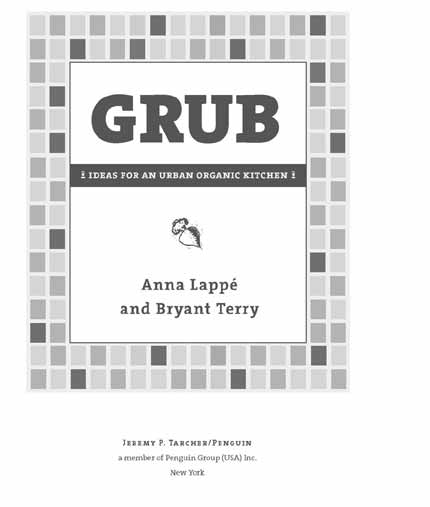
JEREMY P. TARCHER/PENGUIN
Published by the Penguin Group
Penguin Group (USA) Inc., 375 Hudson Street, New York, New York 10014, USA
Penguin Group (Canada), 90 Eglinton Avenue East, Suite 700, Toronto, Ontario M4P 2Y3, Canada
(a division of Pearson Penguin Canada Inc.) Penguin Books Ltd, 80 Strand, London WC2R 0RL,
England Penguin Ireland, 25 St Stephens Green, Dublin 2, Ireland (a division of Penguin
Books Ltd) Penguin Group (Australia), 250 Camberwell Road, Camberwell, Victoria 3124,
Australia (a division of Pearson Australia Group Pty Ltd) Penguin Books India Pvt Ltd,
11 Community Centre, Panchsheel Park, New Delhi-110 017, India Penguin Group (NZ),
Cnr Airborne and Rosedale Roads, Albany, Auckland 1310, New Zealand (a division of
Pearson New Zealand Ltd) Penguin Books (South Africa) (Pty) Ltd,
24 Sturdee Avenue, Rosebank, Johannesburg 2196, South Africa
Penguin Books Ltd, Registered Offices:
80 Strand, London WC2R 0RL, England
Copyright 2006 by Anna Lapp and Bryant Terry
All rights reserved. No part of this book may be reproduced, scanned, or distributed
in any printed or electronic form without permission. Please do not participate
in or encourage piracy of copyrighted materials in violation of the authors rights.
Purchase only authorized editions.
Published simultaneously in Canada
Most Tarcher/Penguin books are available at special quantity discounts for bulk
purchase for sales promotions, premiums, fund-raising, and educational needs.
Special books or book excerpts also can be created to fit specific needs. For details,
write Penguin Group (USA) Inc. Special Markets, 375 Hudson Street,
New York, NY 10014.
Library of Congress Cataloging-in-Publication Data
Lapp, Anna, date.
Grub : ideas for an urban organic kitchen / Anna Lapp and Bryant Terry.
p. cm.
Includes bibliographical references and index.
ISBN : 978-1-4406-2825-2
The recipes contained in this book are to be followed exactly as written. The publisher is not responsible for your specific health or allergy needs that may require medical supervision. The publisher is not responsible for any adverse reaction to the recipes contained in this book.
While the authors have made every effort to provide accurate telephone numbers and Internet addresses at the time of publication, neither the publisher nor the authors assume any responsibility for errors, or for changes that occur after publication. Further, the publisher does not have any control over and does not assume any responsibility for author or third-party websites or their content.
http://us.penguingroup.com
For my parents,
Beatrice and Booker Terry,
for nourishing me
BRYANT
For my dad,
Marc Alan Lapp
(1943-2005)
ANNA
Figures
Figure 1: Whats in the Pesticides Used on Our Food? 13
Figure 2: How Much of Our Food Do the Largest Companies Control? 23
Figure 3: What if Food Corporations Were Nations? 39
Figure 4: Who Are You Buying Your Organics From? 64
Figure 5: Special Sauce? Secret Formula? 86
Figure 6: The Cost of Food: A Day in the Life of Two Eaters 98
Figure 7: Whats in Season? 128
grub (gr b),n.
- Grub is organic and sustainably raised whole and locally grown foods;
- Grub is produced with fairness from seed to table;
- Grub is good for our bodies, our communities, and our environment.
Foreword
Some people spend way too much time thinking about food. You know the type: a dozen kinds of olive oil in the kitchen cupboard, cranky when the goat cheese isnt served at room temperature, fond of restaurants that serve chocolate-covered edamame. When foodies and gourmands start talking about their latest culinary obsession, I look for the nearest exit. But most people dont spend enough time thinking about food, at least not in a meaningful way. They may worry about calories and carbs, and yet miss the real point. What we eat has changed more during the past thirty years than in the previous thirty thousand. Trans fats, genetically engineered soybeans, livestock pumped with growth hormones and fed slaughterhouse waste, Chicken McNuggetsnobodys ever eaten this stuff before. Weve become a nation of guinea pigs, the subjects in a vast scientific experiment, waiting to see what happens when human beings eat too much industrialized food. Much of it tastes and smells pretty good. The pleasure, however, doesnt last long. Learning where our modern mcfood comes from and how its made and what its doing to the world leaves a bitter aftertaste.
Those are some of the reasons you should read this book. The authors dont want to lecture you or browbeat you into politically correct dining. They just want you to know whats wrong with our current food system and how easily it can be made right. They provide the basic information about how to eat in a way thats not only sustainable for the environment, but also for your body. The recipes here arent too precious or fancy. I like the idea of food thats guilt-free and tastes good. The word Grub really says it all.
After this book appears, lobbyists for the fast-food and meatpacking industries will probably accuse Bryant Terry and Anna Lapp of being food Nazis. Thats one more reason to read their work. Bryant has spent years helping inner-city kids make the connection between a poor diet and poor health. Anna has been challenging the logic of industrialized agriculture since practically the day she was born. It makes perfect sense, in this age of doublespeak and disinformation, that they might be compared to Nazis. Meanwhile, the handful of corporations that control our food supply are wiping out small businesses, driving independent farmers and ranchers off the land, spending billions of dollars on deceptive mass marketing, pushing for everything everywhere to be the same, and attacking anyone who challenges their unusual version of the free market. The authors of this book may be passionate and committed, but if youre looking for the totalitarian impulse in America, just head for the nearest drive-through. The fast-food giants are becoming obsolete, and they know it. Theyre like angry, dying beasts lashing out. The twenty-first century doesnt belong to them. Nows the time for some grub.
ERIC SCHLOSSER
Opening Note
Bryant and I met because of a book. It was 2003 and mutual friends had just released the
Future 500, a one-of-a-kind snapshot of 500 youth-led organizations around the country. Flipping through it, I stumbled on a description of the organization Bryant founded:
b-healthy educates low-income youth... about healthy cooking, nutrition, and affordable alternatives to low-quality food. b-healthy helps young people connect their personal health with the social and economic health of their communities.
I had only just moved to the neighborhood, but knew enough about the geography of Fort Greene, Brooklyn, to know that Bryant lived just a few blocks away. And I knew enough about him from this short description to know we had to meet. Within a week, we got together for coffee.
In that first meeting, we described the paths that brought us to food: His, from summers discovering the joys of food in his grandparents backyard garden in Memphis when he was just knee-high to a June bug to a stint as a history Ph.D. student where he learned about the connections between poverty, malnutrition, and institutional racism. Mine, from a childhood in San Francisco as a test subject for my mothers


